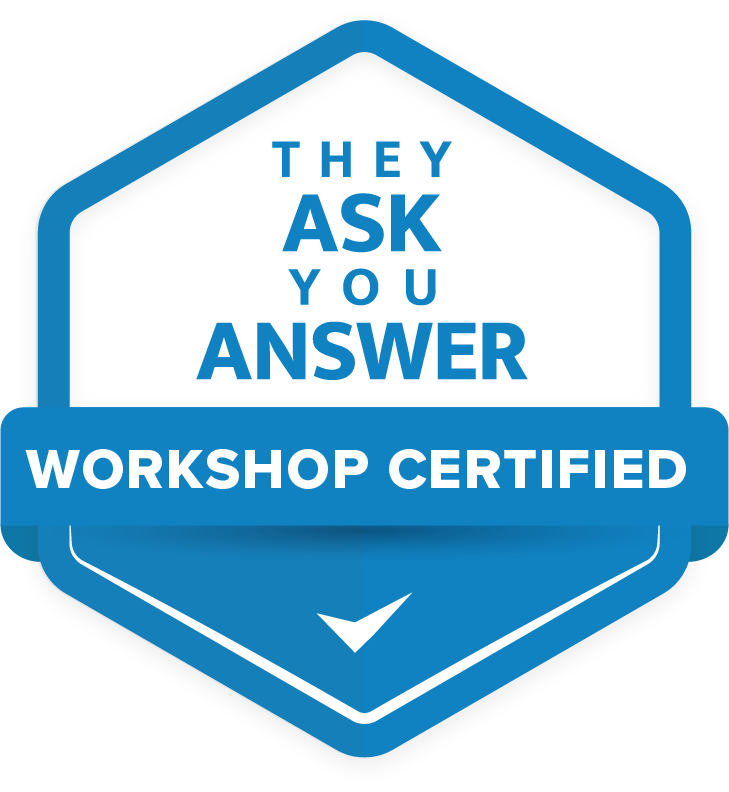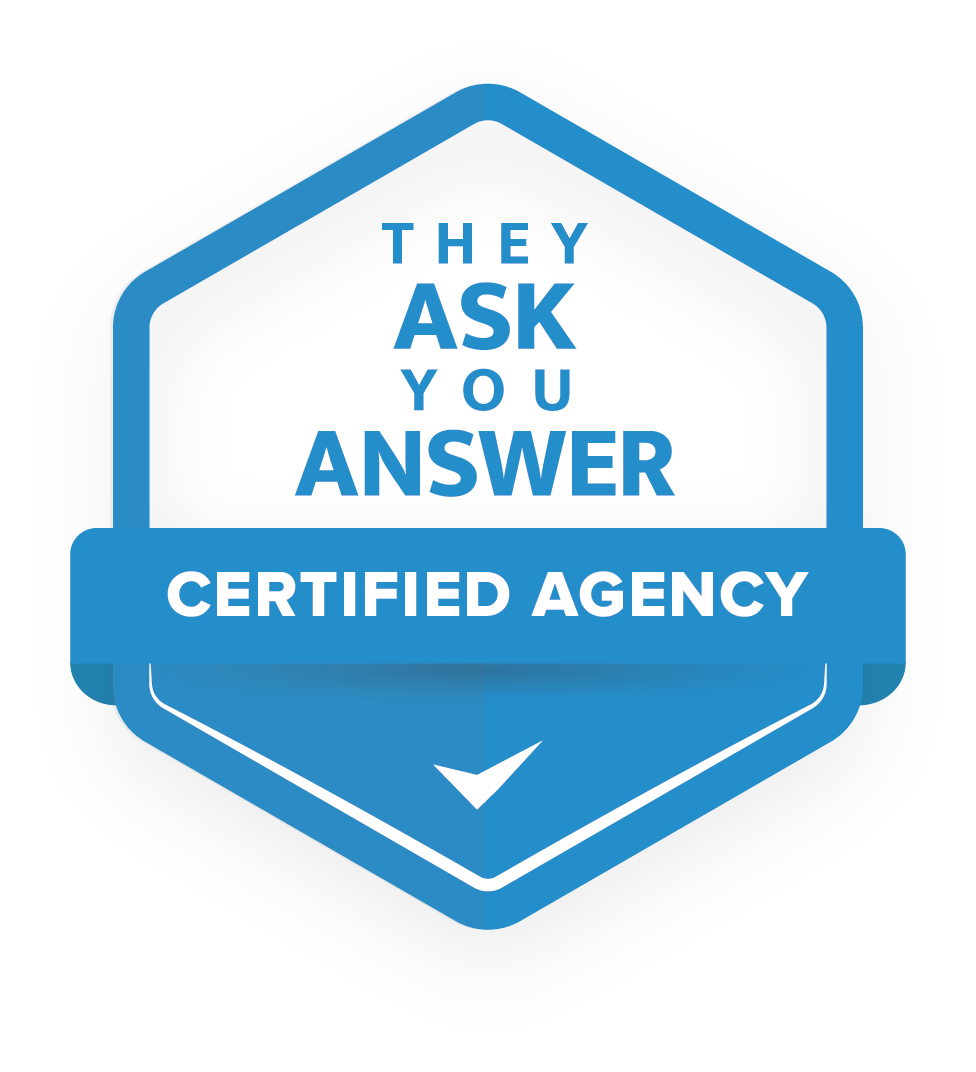The Big 5: The 'ultimate guide' to writing product reviews your customers want to read

You've just started as a TAYA content manager, and now you're faced with a challenge you may feel a little uncomfortable with: writing your first review.
All sorts of questions run through your mind:
- "Isn't it crazy for me to write a review about our products? That's what our customers should be doing, right?"
- "It's totally not credible if I write a review about our competitors, right?"
- "How do you write a review without being just a little more positive about your own products?"
As a content manager at Buzzlytics, I understand your hesitation. I too struggled with these questions when I wrote my first review. I wanted to act like a teacher, but I found it very difficult to be unbiased. At the same time, I knew that writing honest and informative reviews is an incredibly powerful way to build trust with your potential customers.
In this article, I explain why it is so important to write reviews of your own as well as other people's products. I'll show you step by step how to write a review that is truly valuable to your readers. After reading this article, you'll know exactly how to write reviews that your customers love to read - reviews that help them make informed purchasing decisions, and at the same time position your company as a trusted source in your industry.
95% of consumers read reviews before buying something.
Why you should write reviews of what you sell
Think back to your last major purchase. Did you read online reviews then before you tied the knot? Chances are you did: as many as 95% of consumers read online reviews before buying something. So clearly, reviews can be decisive in the buying process. That is why it is important that you, as a company, write reviews yourself.
There are a number of reasons for this:
1. Reviews are golden for prospects who are in the middle or bottom of the sales funnel
Reviews are especially valuable for potential customers who already know they need a solution and are now comparing specific products. These people are in the middle or bottom of the sales funnel.
- Middle of the funnel (mofu): This is where buyers compare different options. Your reviews can help them understand the pros and cons of different products.
- Bottom of the funnel (bofu): This is where buyers are almost ready to make a decision. Detailed, honest reviews can give just that final push they need to choose your product.
By writing reviews that address the specific needs and concerns of these buyers, you can effectively guide them toward a purchase decision.
Reviews are especially valuable to potential customers who are now comparing specific products.
2. Reviews reduce the risk of buyer's remorse
No one likes the feeling of having made the wrong choice after a purchase. Honest and comprehensive reviews can help prevent this:
- They give a realistic picture of what buyers can expect, reducing the chance of unpleasant surprises.
- By highlighting both the strengths and weaknesses of a product, you help buyers make an informed decision.
- If you make it clear who the product is and is not suitable for, the product is more likely to reach the right people.
By reducing the likelihood of buyer's remorse, you increase customer satisfaction and reduce returns and complaints.
Also read: The Big 5: How to create compelling 'problems' content in 3 steps (+ examples)
3. Reviews repair the trust gap between buyer and seller
At a time when consumers are often skeptical of sales pitches, honest reviews can help restore trust:
- By being open about both the positive and negative aspects of a product, you show that you are telling the truth.
- By acknowledging that your product may not be the best choice in every situation, you show that you have the customer's best interests at heart.
- By answering questions that buyers often have, you show that you understand and respond to their needs.
This openness and honesty can lead to a stronger bond of trust with potential customers, which can result in increased sales and customer loyalty in the long run.
Honest reviews can help restore the confidence of skeptical consumers.
4. Buyers learn directly from you rather than through someone else
When you write your own reviews, you have control over the information potential customers get about your reviews:
- You can ensure that the information is accurate and up-to-date, unlike third-party reviews that may be outdated.
- You can elaborate on specific features or benefits that you think are important but that others may overlook.
- You can answer frequently asked questions directly, making buyers less likely to look elsewhere for information.
- By being the source of information yourself, you strengthen your position as an expert and authority in your field.
Moreover, potential customers stay on your website while reading this valuable information, which increases the likelihood that they will eventually buy from you instead of going to a competitor.
5. Reviews drive more organic traffic
In a previous article about writing about competitors, I wrote that I was working on a review of a competitor's product for a previous employer.
That search traffic would normally go to the competitor's site or review websites, but by writing about the competitor ourselves, we could get a piece of this.
Unfortunately, the article never came, but I am sure it would have brought us many visitors who normally would never have come to our website.
A review about your competitor drives more organic traffic to your website.
How do you write a good review?
So much for the theory. Now it's time to roll up your sleeves and actually get to work writing your review.
To do this, follow these six practical steps:
1. Be honest and objective
When writing a review, it is essential to take off your business hat and empathize with the consumer. See the product through your potential customer's eyes and ask yourself what they want to know. Don't be afraid to acknowledge the situations in which the product may not be appropriate. This shows that you are sincere and have your customers' best interests at heart. Also be open about your possible biases. For example, if you are the manufacturer or seller of the product, state this clearly. This honesty will only increase confidence in your review.
In their article on alternatives to a central heating boiler, heat pump supplier hoomie is transparent about the fact that they sell heat pumps:

2. Make a list and prioritize
Start by making a list of all the products you sell. This will give you a good overview and help you plan your reviews. It's wise to start with your best-selling products. These products are already popular, and good reviews can further increase their appeal. Also look at products you want to sell more of. A well-written, honest review can draw attention to undervalued products and boost sales.
Start writing reviews of your best-selling products.
3. Get to know the product well
Thorough knowledge of the product is crucial to a good review. Start by studying the manufacturer's specifications. Then read consumer and independent reviews to get a broad perspective. If possible, test the product yourself or interview a colleague who has tested the product himself. Nothing beats personal experience when it comes to reviewing a product.
4. Define your assessment criteria
Before you start writing, it is important to establish your review criteria. Consider what aspects are important to buyers of this particular product. These could be things like price, durability, ease of use, or specific features. Adjust your criteria based on the type of product. For example, the criteria for a smartphone will be different than those for a kitchen blender. By defining your criteria in advance, you ensure that your review is structured and complete.
5. Create an outline with the user in mind
A good outline is the basis of an effective review. Always consider what the buyer wants to know. What questions would he have about the product? What concerns need to be addressed? Use a clear structure that the reader can easily follow. A clear structure not only makes your review more readable, it also helps to cover all the important points.
For example, a good structure is:
- introduction
- product description
- evaluation criteria
- advantages and disadvantages
- suitable/unsuitable for
- equations
- expert quotes
- customer experiences
- conclusion
Tip: Do you find it difficult to determine what readers want to know? The They Ask, You Answer Content Compass is a powerful tool that can help you do this. In our blog How to write a blog that generates traffic, leads and sales? [proven method] you can read more about this.
A clear structure not only makes your review more readable, but also helps to cover all the important points.
6. Write the review
Now that you've made all the preparations, it's time to write the actual review. In doing so, follow your outline, but don't be afraid to deviate if necessary. Be thorough in your descriptions and analysis, but at the same time stay concise. Readers appreciate detailed information, but don't want to drown in unnecessary details.
Remain objective throughout the writing process. Present the facts and your honest opinion, but leave the final decision to the reader. A well-written, balanced review will help readers make an informed decision, whether that results in a purchase or not.
Common objections to writing reviews
Some companies hesitate to write product reviews themselves. Here are two common objections and my response to them:
1. "Buyers should write reviews, not us"
This is an understandable thought, but there are good reasons why companies should write their own reviews. Customer reviews are valuable, but they are often brief or emotionally colored. They do not always give a complete or objective picture of the product.
Professional reviews, on the other hand, tend to be better written and more objective. They can go deeper into a product's specifications and features and put them into context.
Moreover, the ultimate goal of a review is to be truly helpful to potential buyers. As a business, you have the knowledge and expertise to write a thorough, informative review that helps buyers make an informed decision.
2. "Independents should write reviews"
It is true that trust is crucial when it comes to reviews, and many people therefore think that reviews should be written by independent parties.
But as a company, you can also write trustworthy reviews by being open and honest. Be transparent about your relationship with the product, acknowledge both strengths and weaknesses, and focus on providing the reader with valuable information.
Writing reviews yourself also gives you control over the quality and tone of the content. You can make sure that the review is thorough, accurate, up-to-date and consistent with your brand's tone-of-voice. Ultimately, it's about providing honest, helpful information that helps potential buyers make a decision.
As a business, you have the knowledge and expertise to write a thorough, informative review that helps buyers make an informed decision.
Writing honest reviews pays off
Writing honest and informative product reviews is a powerful way to build trust with your potential customers. By being open and transparent about the strengths and weaknesses of products, you help customers make informed purchasing decisions.
Remember that buyers today do thorough online research before making a purchase. They are looking for reliable information to base their choice on. By writing honest reviews yourself, you can be that reliable source of information they are looking for.
At Buzzlytics, we have seen how effective this approach is. We have helped several companies strengthen their relationship of trust with customers by writing honest reviews. These companies saw an increase not only in sales, but also in customer satisfaction and loyalty.
Ready to get started writing your own product reviews? Start small, pick a product and apply the steps we discussed in this article.
Curious about how to write the other Big 5 articles? Then also read:
Related articles
May 28, 2024
-
Reading time: +/- 7 min








